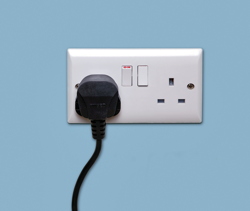Rising to the challenge

Lord Rupert Redesdale is a man on a mission. In fact, he’s been pursuing his goal of more effective, efficient and sustainable energy production and use in the UK for some time. MBS talks to him about the future.
He was the Energy Spokesman for the Liberal Democrats for the House of Lords between 2000 and 2008, when he introduced a number of bills relating to energy and conservation.
He founded the Anaerobic Digestion and Biogas Association in 2009, which now has over 260 member companies. And in 2012 he founded the Energy Managers Association to act as ‘the voice of the energy management profession.’
It’s fair to say that after all this time Redesdale has a sound grip on the subtleties of the UK energy ecostructure, but in spite of this, he can summarise our challenge quickly: “We haven’t got enough energy.”
Government has of course recognised the problem, and seems to be making attempts at a solution. For example, as highlighted in October’s MBS, changes to TRIAD peak payments
are being contemplated, along with reductions in the payments made to embedded generators who support the Grid at peak times. Unfortunately, however well-intentioned, these tweaks are not enough as far as Redesdale is concerned.
 |
| Shutterstock: MPSPhotography |
 |
| Shutterstock: chuyuss |
 |
| Shutterstock: RTimages |
| From wind to wire to plug: the UK needs to improve its planning to deal with our energy challenge |
“We don’t have enough power stations. Everyone may be talking about Triads, or fiddling with the numbers on tariffs, but no one is asking if we have enough electricity to keep the lights on at peak,” he points out. “And embedded generators are not a good solution because they are generally producing electricity from diesel. That makes no sense at all.”
The state we find ourselves in is the result of many years of poor planning, or rather of not planning far enough ahead. Governments are of their nature not great at thinking beyond the next five years, and even that’s stretching the boundaries.
“For the last ten to twenty years there has been discussion about nuclear power stations, and how we might expect them to bridge the gap as we divest the grid of fossil fuels. But now it’s too late. A power station has a fifty-year lifespan, and politicians don’t think in those terms,” says Redesdale.
One of the other reasons that the UK finds itself in a precarious position with energy is that the switch to renewables has been pretty effective. While this has been a laudable strategy, and one that Redesdale fully supports, there are some unintended consequences.
“The growth of renewables is good news. But energy output is intermittent and sometimes the energy is there at the wrong time. For example, on winter evenings when we need a lot of electricity for homes and businesses, solar photovoltaics are not productive,” he says.
Harnessing technologies such as battery storage is one way that energy from renewables such as solar and wind can be captured and used when it’s most needed.
“This process of dynamic response means that buildings can shift to battery power at peak times. It will save money for the end-users, while reducing demand on the Grid.”
But we are a long way from seeing batteries being widely adopted and it will take a few years for them to become widespread enough to have a major impact on the energy market.
Ultimately, the best solution for our problem as Redesdale sees it is that we must reduce energy demand further. And it’s here that he sees energy managers taking a lead for organisations. “Power cuts will start to drive changes in how we view energy management,” warns Redesdale.
And following developments in the newly opened water market, it seems that it’s another area where efficiency measures need to increase.
Redesdale has himself been involved in the water market, and he speaks from experience when he says: “This market has been made very difficult for new entrants because of rules on credit requirements. I think that we will see about thirty companies being whittled down to four or five. So, deregulation could see water prices rise – not fall, as is the objective.”
Again, for Redesdale, price is not the most important issue. “Scarcity is going to be the problem,” he says. “That’s the real issue. Water efficiency in buildings will be the challenge. If you are a business that can now select its water supplier, I’d advise that you pick a company to help with long-term water efficiency and not just offer reduced prices.”
The message is clear: scarcity of resources such as energy and water mean that we must drive ever-greater efficiency in buildings. There is no single silver bullet solution to our energy challenges. Renewables, batteries, and nuclear are all options, but ultimately, we must all find ways to reduce requirements first, so the burden on generation is lower.







